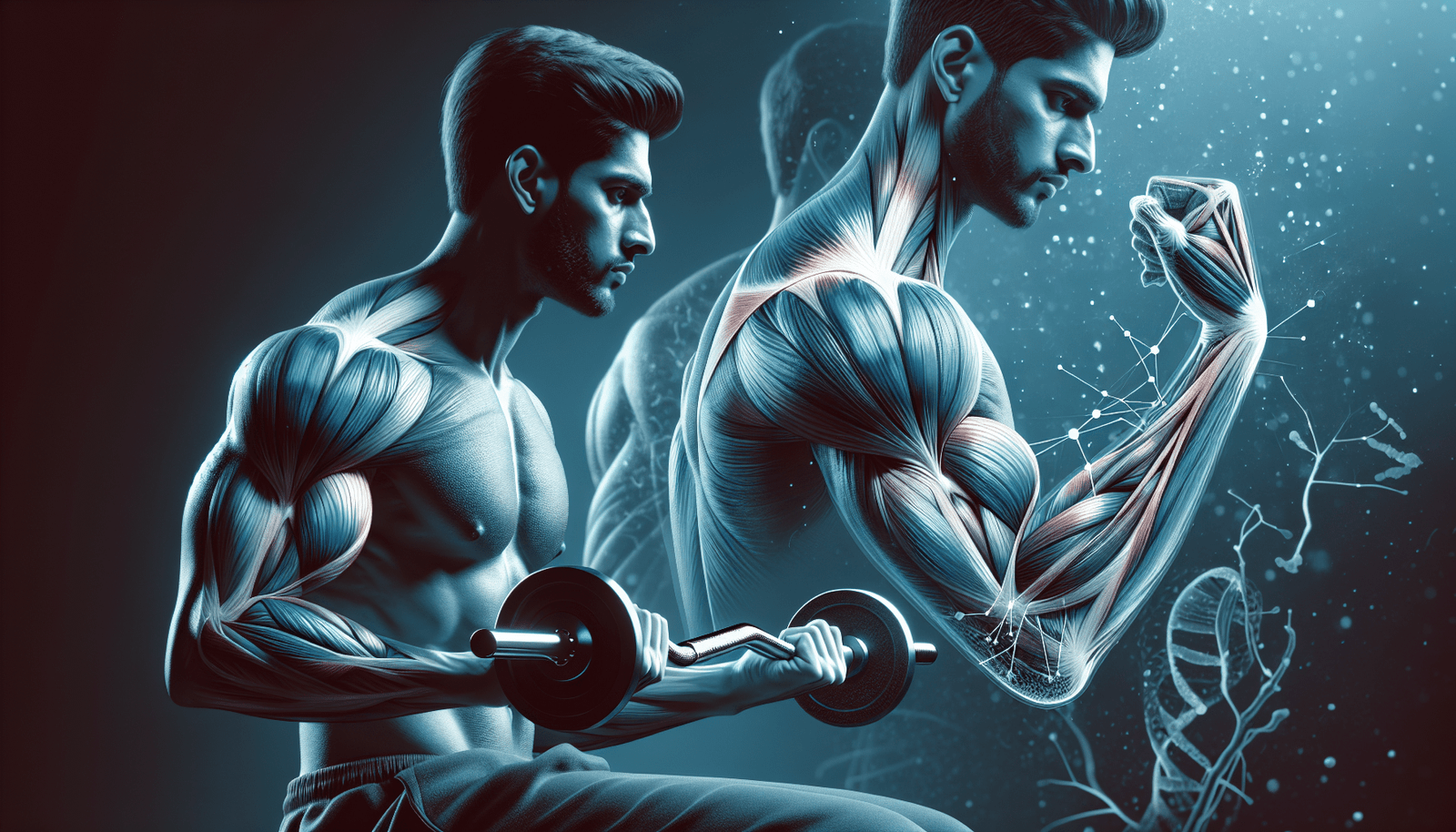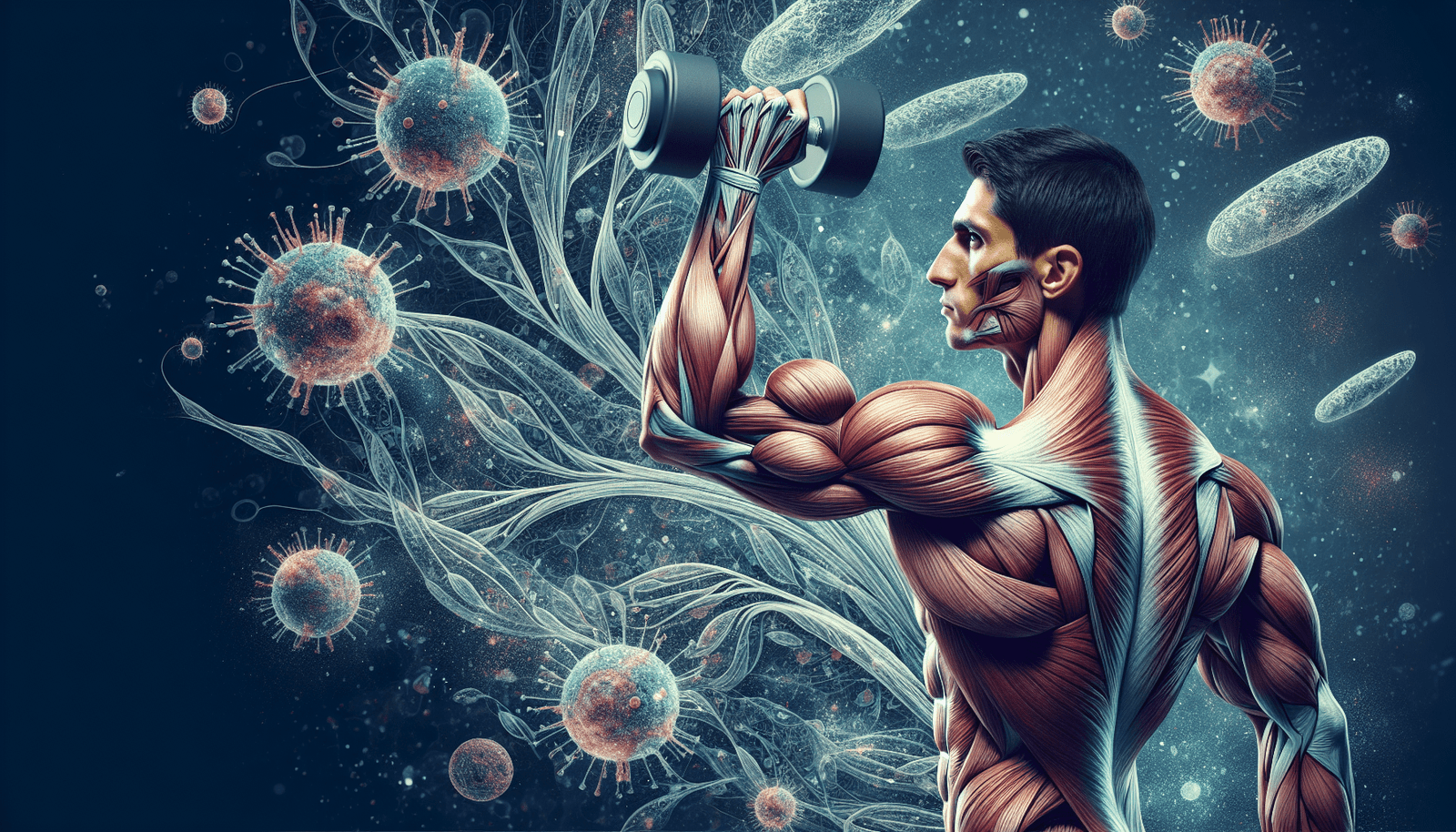Understanding How Many Proteins are Needed to Build Muscle
If you’re discerning about your fitness goals, it’s crucial to know how proteins play a big part in muscle-building. Imagine you’re in the gym each day, challenging your body with a rigorous routine, is it enough to achieve the defined, strong muscles you desire? What you might not realize is that it’s not all about lifting heavy: what you feed your body is equally significant. In this article, you’ll uncover the role of proteins in muscle development and maintenance, and just how much of it should ideally be part of your nutrition plan. It’s more than just a guide – think of it as your personal trainer in understanding how proteins influence muscle growth. So gear up, and let’s jump right into it.

The Role of Protein in Muscle Growth
Muscle growth is an intricate process, and protein plays a significant role in it. Let’s break down how protein contributes to muscle gain and recovery.
The process of muscle protein synthesis
Muscle protein synthesis, also known to us as muscle growth, happens when the protein production in your body is higher than the rate of protein breakdown. When you exercise, you create microscopic tears in your muscles. Your body then uses amino acids – the building blocks of protein – to repair these tears. This process helps your muscles grow bigger and stronger. So, protein is vital for muscle protein synthesis because it provides the requisite amino acids.
Functions of protein in muscle recovery
Apart from contributing to muscle growth, protein also plays a key role in muscle recovery. After a strenuous workout, your muscles require sufficient protein to repair the damaged tissues and fibers. Protein aids in reducing muscle soreness and accelerating the recovery time. It also prevents muscle atrophy, which is the wasting away of muscles due to inadequate protein intake.
How Much Protein Should You Consume?
Knowing how much protein you need to consume for muscle growth can be a fine balance. Determining your individual protein requirements is influenced by various factors.
Determining individual protein needs
Your individual protein needs largely depend on your body weight, age, gender, activity level, and overall health. Most nutrition organizations recommend a daily protein intake of 0.8 grams per kilogram of body weight. However, if you’re physically active and aiming to build muscle, your protein needs are likely to be higher.
Factors affecting protein requirements
Several factors can affect your protein requirements, including your muscle mass, physical activity level, and fitness goals. For instance, if you’re undergoing weight training, your protein requirements will be higher to support muscle recovery and growth. Also, as you age, your protein needs might increase to help maintain muscle mass.
Protein recommendations for athletes
Athletes and individuals participating in resistance training may need more protein to support muscle growth and recovery. The American College of Sports Medicine suggests a protein intake ranging from 1.2 to 2.0 grams per kilogram of body weight for such individuals.
Sources of Protein
You can get your daily required protein from a wide array of foods. Both animal and plant sources are rich in protein.
Animal sources vs. Plant sources of protein
Animal sources of protein, such as meat, poultry, fish, eggs, and dairy, contain all nine essential amino acids your body needs and are thus considered complete proteins. On the other hand, plant-based proteins from foods like legumes, grains, nuts, and seeds, might lack one or more of these amino acids, so they’re considered incomplete proteins. However, by consuming a variety of plant-based proteins throughout the day, you can still get all the essential amino acids you need.
How to ensure optimum protein intake
Ensuring optimum protein intake is crucial for muscle growth. One way to do this is by including a source of protein in each of your meals and snacks. It can come from either animal or plant sources, depending on your diet preference. Eating a variety of protein-rich foods also helps you get a broad spectrum of amino acids.
Protein Timing and Distribution
Getting your daily protein requirement is important, but it’s not just about how much you consume; it’s also about when and how often you consume it.
Importance of protein intake timing
Protein timing can make a difference in muscle growth and recovery. Consuming protein before and after workouts can optimize muscle repair and growth. Consuming protein-rich meals throughout the day also helps to maintain a steady flow of amino acids in your bloodstream.
Ideal distribution of protein throughout the day
Instead of consuming a large amount of protein in one meal, it’s advisable to evenly distribute it throughout your meals during the day. This approach keeps a steady supply of amino acids available for muscle protein synthesis.

Nutritional Considerations for Muscle Building
Building muscle requires more than just protein. Other nutritional considerations also play a key role.
Balancing protein with other macronutrients
While protein is essential for muscle growth, your body also needs carbohydrates and fats. Carbohydrates provide energy for workouts, and fats are essential for absorption of fat-soluble vitamins and hormone production. Balancing all these macronutrients ensures you get the calories and nourishment your muscles need for growth.
The importance of hydration & micronutrients
Hydration is crucial for muscle health. Water helps transport nutrients to your muscles and aids in digestion. Micronutrients like vitamins and minerals are also important for muscle growth and recovery as they aid in various physiological functions, like energy production and inflammation reduction.
Types of Proteins and Their Effects on Muscle Growth
There are different types of proteins, each with unique properties that can affect muscle growth differently.
Different types of proteins
Various types of proteins include whey, casein, and soy protein. Whey protein is a fast-digesting protein and is great for post-workout recovery. Casein protein, on the other hand, is slow-digesting, making it ideal for consuming before bedtime to promote overnight muscle recovery. Soy protein is a beneficial choice for those following a plant-based diet.
How each type impacts muscle growth
Each type of protein impacts muscle growth differently due to the variation in their digestion rates and amino acid profiles. Fast-digesting proteins like whey can provide a quick supply of amino acids post-workout, promoting muscle repair and growth. Slow-digesting proteins like casein keep a steady supply of amino acids for a longer period, helping with long-term muscle recovery and maintenance.

Protein Consumption and Safety
While protein is beneficial for muscle growth, excessive intake can pose potential risks.
Potential risks of excessive protein intake
Excessive protein intake can strain your kidneys, potentially leading to kidney damage in vulnerable individuals. It can also lead to digestive issues like constipation or diarrhea, nutrient imbalance, and even increased risk of certain types of cancer.
Indicators of adequate protein consumption
A balance is necessary when it comes to protein consumption. Indicators of adequate protein intake include consistent muscle growth, improved workout recovery, and a decrease in muscle soreness and fatigue.
Benefits of Protein Supplements
protein supplements, like whey protein and casein protein, can offer additional benefits for muscle growth.
Whey Protein vs. Casein Protein
Whey and casein protein supplements both have benefits for muscle growth. Whey protein, as a fast-digesting protein, is best taken after workouts for immediate muscle recovery needs. Casein protein, being slow-digesting, can be taken before bedtime to aid overnight muscle recovery.
When to use protein supplements
Protein supplements can be beneficial when it’s difficult to meet your protein needs through food alone. They’re convenient, especially for post-workout recovery. However, they should not replace whole foods but be used as a supplement to a balanced diet.

FAQ: Most Common Questions About Protein and Muscle Growth
Can you consume too much protein?
Yes, you can consume too much protein, and doing so can potentially lead to health problems such as kidney damage, digestive issues, nutrient imbalance, and dehydration.
What happens if you aren’t consuming enough protein?
Insufficient protein intake can hinder muscle growth, prolong muscle recovery, and increase muscle soreness. It can also lead to muscle atrophy and weak immune function.
Protein Consumption: Myth vs. Fact
Let’s debunk some myths and facts about protein consumption.
Addressing common misconceptions about protein consumption
One common misconception is that more protein always equals more muscle. But, while protein is vital for muscle growth, excessive amounts won’t necessarily lead to increased muscle growth. Instead, it could potentially lead to health issues.
Another myth is that you can only get high-quality protein from meat. In fact, many plant-based foods are also high in protein and show similar muscle building benefits when combined correctly.
Unveiling scientific truths about protein intake
Scientifically speaking, your body does need an adequate amount of protein for muscle growth, but it’s also important to evenly distribute it throughout the day. And although animal protein is a complete protein source, combinations of different plant proteins can also offer all essential amino acids. Balancing protein consumption with other macronutrients and maintaining hydration also plays a significant role in muscle growth.


